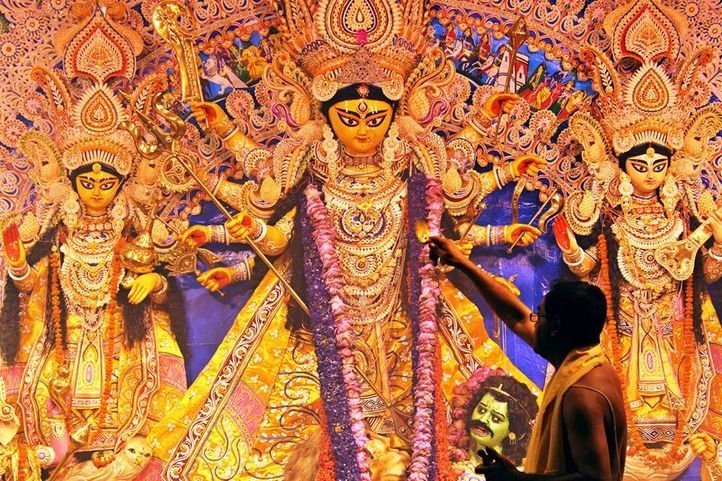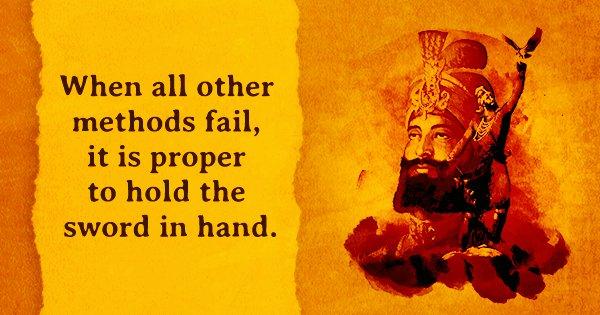It is that time of the year again. That beautiful, magical time of year when every Bengali’s heart is oozing with euphoria, nostalgia and warmth. It’s begun. As the serene morning air reverberates with the ever-so-familiar sound of the conch shell, your heart is filled with the realization that Maa is on her way, and the dhaaks aren’t far behind.
You know it is a celebration of epic proportions when the entirety of a community wakes up during the chilly hours of an October dawn to herald the homecoming of the Goddess of supreme power, Maa Durga.
Mahalaya marks the beginning of Debi Paksha . When Bengali households across the nation resonate with the echoes of Birendra Krishna Bhadra’s timeless chants and the soul-stirring melody of the songs that make up ‘Mahishasur Mardini’.
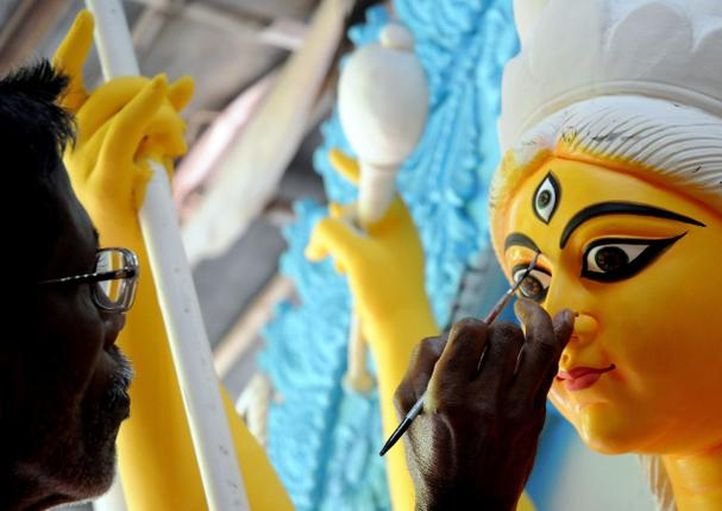
An invocation to Goddess Durga to descend to the earth, Mahalaya is celebrated seven days before the onset of Durga Puja. For every Bengali who has grown up in West Bengal, Mahalaya has been, and will forever be, associated with the legendary broadcast of ‘Mahishasur Mardini’ on the radio.
‘Mahishasur Mardini’ or ‘The Annihilation of the Demon’ was first broadcast as a live program on All India Radio in the early 1930s.
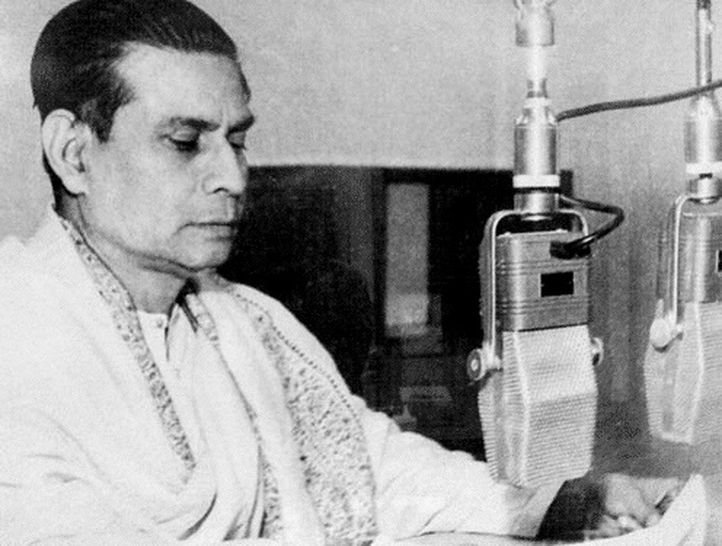
It is an ethereal audio montage of Bengali devotional songs, classical music and recitation of scriptural verses from ‘Chandi Kavya’. The perfectly pitched, haunting voice of Birendra Krishna Bhadra as he narrates the advent of Goddess Durga and the eventual destruction of Mahishasur has become a household phenomenon since.
The storyline of ‘Mahishasur Mardini’ follows the increasing cruelty of the demon king Mahisasura against the gods, who in their efforts to annihilate the demon create the supreme Goddess – an all powerful female form with ten arms, the Mother of the Universe.
Combat entails between the seemingly invincible Asura and Maa Durga, and after a fierce battle, good prevails over evil as the ‘Mahamaya’ is able to slay the demon king with her trident.
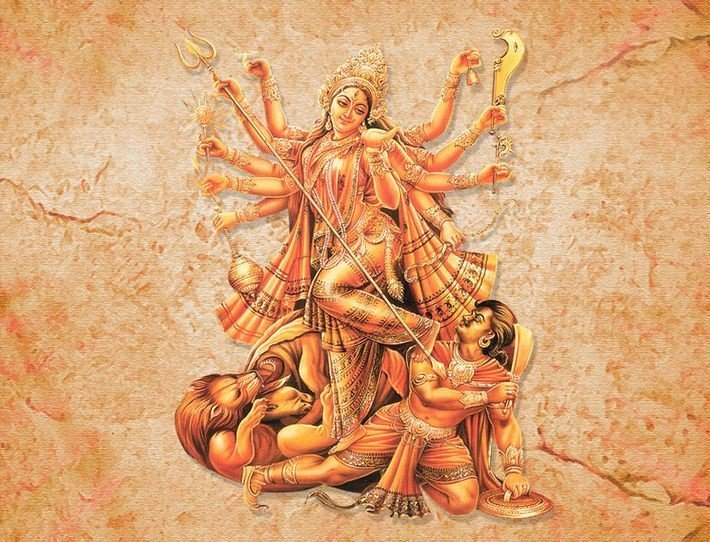
Mahalaya is an invocation to the saviour Goddess and a celebration of good over evil. Scripted by Bani Kumar, and composed by Pankaj Mullick, the songs that are a part of this saga, as was once aired live on the radio, have been rendered by singing legends like Hemanta Kumar & Arati Mukherjee.
Decades have passed since the demise of Birendra Krishna Bhadra, and the live broadcast of the show has long since been halted, but the tradition of waking up during the wee hours of the morning to tune into a pre-recorded version of the glorious audio-drama prevails.
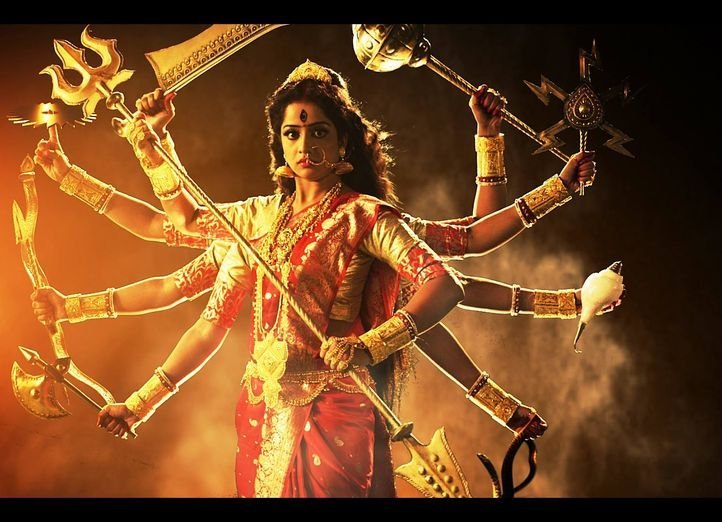
Despite standing at a juncture when our cultural identity is steadily slipping through our fingers owing to westernization, the resilience with which the emotional upheaval associated with Durga Puja and the tradition of Mahalaya still stands strong amongst the Bengali community is incredibly reassuring. We see recreations of the original radio broadcast on TV as an audio-visual feat, dance dramas bringing to life the epic battle that ensued between Maa Durga and Mahishasur.
As Bengalis spend this morning in quiet prayer, captivated by the divine aura of ‘Mahishasur Mardini’, the realization hits home that Durga Puja is not a celebration of religion, not just mere worship of a deity.
